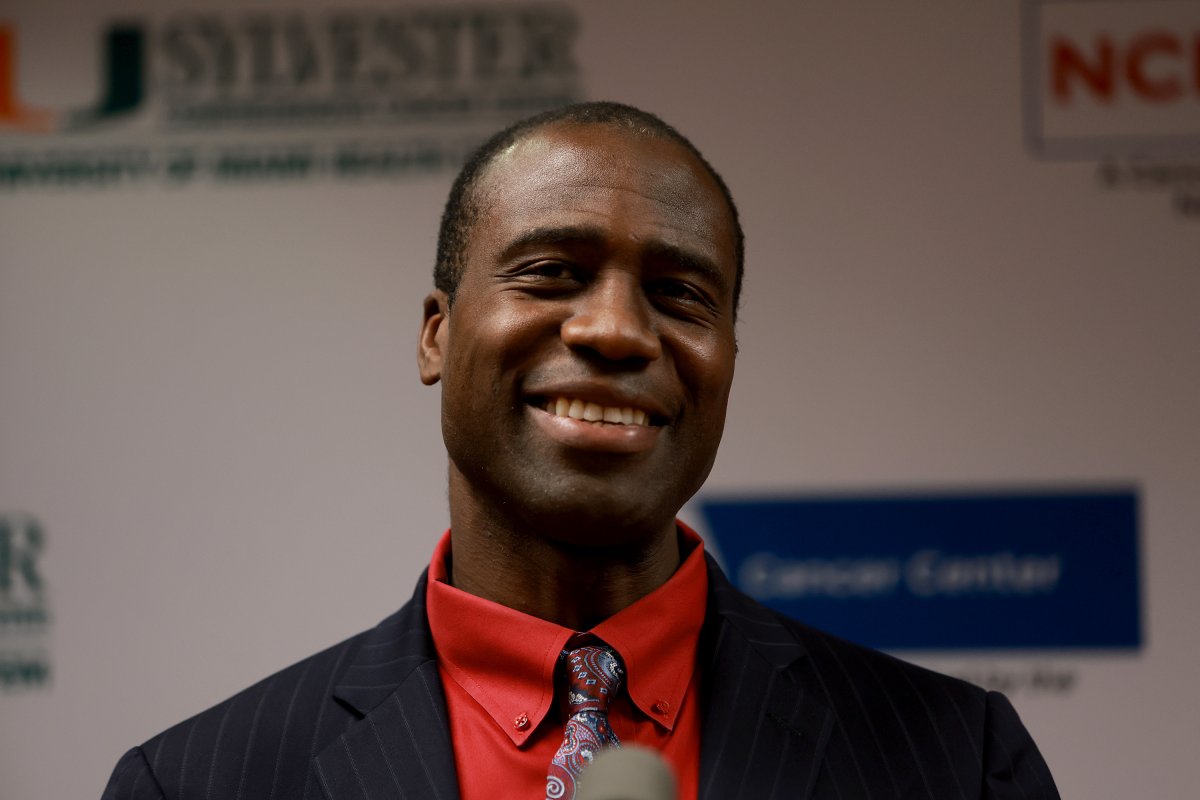Florida Surgeon General Joseph Ladapo is raising alarms about what he sees as the risk of potential cancer posed by COVID vaccines.
Ladapo, who rose to national prominence during the pandemic for spreading misinformation about the virus and promoting vaccination hesitancy, is asking the Food and Drug Administration (FDA) and the U.S. Centers for Disease Control and Prevention (CDC) to answer questions about his concerns regarding DNA integration in mRNA vaccines.
In a December 6 letter, Ladapo said he believed the drug delivery system used by mRNA vaccines could be an "efficient vehicle for delivering contaminant DNA into human cells." He said that because DNA integration could theoretically affect oncogenes—the genes that have the ability to "transform a healthy cell into a cancerous cell"—that DNA contaminant could cause cancer in vaccine recipients.
Ladapo was publicly rebuked by the FDA and CDC in March over his vaccine advice, which the federal agencies said "led to unnecessary death, severe illness and hospitalization," especially among Florida's population.
On Wednesday, Ladapo pressed the FDA and CDC to answer questions about whether the risk of DNA integration was evaluated by drug manufacturers, whether FDA standards take the COVID vaccine's drug delivery system into account, and whether there is a risk of integration with reproductive cells beyond the local injection site.
In a post on X (formerly Twitter), Ladapo said if FDA Commissioner Robert Califf didn't have the answers, "who gave him the right to treat human beings as guinea pigs?"
The FDA told Newsweek in a Tuesday statement that the agency received Ladapo's letter and would respond to him directly.
"The FDA is confident in the quality, safety, and effectiveness of these vaccines," a spokesperson said. "The agency's benefit-risk assessment and ongoing safety surveillance demonstrates that the benefits of their use outweigh their risks. Additionally, with over a billion doses of the mRNA vaccines administered, no safety concerns related to residual DNA have been identified."
"In general, with regard to the mRNA vaccines, while concerns have been raised previously as theoretical issues, available scientific evidence supports the conclusion that the minute amounts of residual DNA do not cause cancer or changes to a person's genetic code," the FDA said.
Paul Offit, an internationally recognized infectious disease expert and the director of the Children's Hospital of Philadelphia's Vaccine Education Center, told Newsweek that although there can be trace levels of fragmented DNA from COVID vaccines, Ladapo's suggestion that it could cause cancer is "fanciful."
He said that because the material that mRNA vaccines start with is double-stranded DNA plasma, there are still fragments of DNA in the final vaccine. However, for that DNA to be harmful in humans, DNA would need to enter the nucleus of a cell.
Offit said it is already difficult for DNA to enter a cell, and even more difficult for it to stay in the cell, since the membrane hates foreign DNA. But it would be impossible for the DNA to get to the nucleus because it lacks the nuclear access signal required for it to enter that unit.
"In order to affect DNA, these fragments of DNA pieces would have to integrate into DNA. That requires integration," Offit said. "Even if they got into the nucleus, they don't have a way to integrate themselves into DNA."

Dan Havlichek, the chief of Michigan State's infectious disease division, told Newsweek that Ladapo's points are "legitimate," but "I doubt that we missed 18 million cases of cancer from the vaccine."
"What [Ladapo's conclusions] show is a profound lack of understanding of how cells work," Offit said.
Ladapo, who was appointed to his role by Governor Ron DeSantis in September 2021, has been widely criticized throughout the pandemic, including by a former supervisor who refused to endorse him for the position and who accused Ladapo of violating his Hippocratic oath with his COVID opinions.
During his tenure as surgeon general, Ladapo has sought to move the state's health policy away from "fear."
Florida became the first state to contradict guidelines from the CDC and the American Academy of Pediatrics after Ladapo recommended that healthy children not be vaccinated, citing anonymous, peer-reviewed studies.
An April report from Politico found that Ladapo altered a vaccine study conducted by the state to suggest that some doses posed a higher risk of cardiac arrest in young men than the initial document found.
Havlichek said that while everyone would have liked more studies looking at vaccine safety, the emergency nature of the pandemic made it appropriate to take risks, noting that the vaccinations were estimated to have prevented 3 million deaths and 18 million hospitalizations.
"It's just it's so hard to watch this," Offit said. "What it is, is it takes advantage of the fact that people don't know this. The minute that they hear the words DNA or they hear the word gene, they think, 'This could affect my genes.
"What the FDA should do is go through this," he continued. "They're the ones who are the federal regulators here. So explain to people why it is that the quantity of DNA that might be a manufacturer residual effect in this vaccine is utterly and completely clinically irrelevant. Explain that."
Update 12/12/23, 5:47 p.m. ET: This article was updated with comment from the FDA.
Uncommon Knowledge
Newsweek is committed to challenging conventional wisdom and finding connections in the search for common ground.
Newsweek is committed to challenging conventional wisdom and finding connections in the search for common ground.
fairness meter
To Rate This Article
About the writer
Katherine Fung is a Newsweek reporter based in New York City. Her focus is reporting on U.S. and world politics. ... Read more





